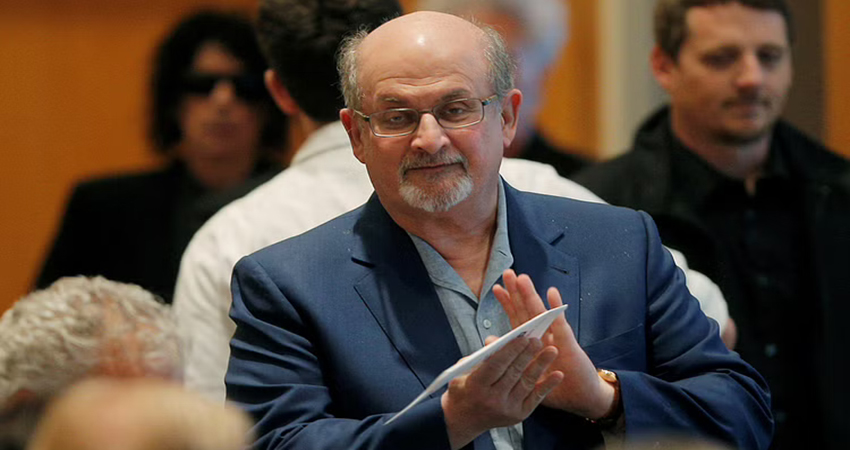Will ‘fossil fuel phase-out’ be completed at COP 28?
Fossil fuels can damage human health in many ways, slowly pushing toward certain death. Fossil fuels, such as coal, oil, and natural gas, have a significant impact on the health of the world's people and the environment. These impacts are mainly related to the emission of greenhouse gases and other pollutants during the extraction, production, transportation, and consumption of these fuels. The human cost of climate change is an important aspect of these health impacts.
How do fossil fuels harm health?
Burning fossil fuel releases pollutants such as particulates, nitrogen oxides, sulfur dioxide, and volatile organic compounds. These pollutants contribute to poor air quality and can lead to breathing problems, such as asthma, chronic bronchitis, and other lung diseases. In densely populated urban areas and areas near industrial facilities or power plants, health effects can be particularly severe.
Air pollution from fossil fuels has been linked to an increased risk of cardiovascular disease, including heart attack and stroke. Fine particles and other pollutants can enter the bloodstream and cause inflammation, leading to damage to blood vessels and the cardiovascular system.
The psychological toll of climate change can be substantial. Increased exposure to extreme weather events, loss of livelihood, and displacement can lead to stress, anxiety, depression, and other mental health conditions.
Fossil fuel consumption in Dhaka
On July 9, a seminar titled 'Sustainable Energy Policy and Our Livelihood' was organized by the Institute of Energy at the Senate Building of Dhaka University.
At the event of 'Sustainable Energy Week-2023', Dhaka Mayor Sheikh Fazle Noor Tapos said, "80% of air pollution is caused by fossil fuels. The oil we use is crude oil. The fuel oil that comes to Bangladesh is of low quality. How dangerous the diesel we use is, even with the highest levels of air pollution on a daily basis, we don't realize. Where many dangerous substances like lead, magnesium, and sulfur are found. Due to this, despite Dhaka city being a small city, we are at the highest level of air pollution here.”
How toxic is Dhaka's air due to fossil fuels?
If there was no air pollution in Dhaka, the people of Dhaka would have lived seven years and seven months longer. In other words, the life expectancy of the people of Dhaka has decreased by 7 years and 7 months due to the air pollution of Dhaka. And due to air pollution, the average life expectancy of the people of the entire country has decreased by about five years and four months. In 2021, the Energy Policy Institute of the University of Chicago in the United States gave such alarming information. According to the organization's 'Air Quality Life Index', the air pollution rate in each of the 64 districts of the country is at least three times higher than the World Health Organization guidelines. Polluted air contains airborne solids and liquids, including soot, smoke or dust, which are referred to as 'particulate matter'.
Air quality depends on the amount of suspended particulate matter, or PM-10, and fine particulate matter, or PM2.5, measured in units of micrograms per cubic meter (parts per million-ppm).
Air quality index or AQI is created by considering air pollution caused by sulfur dioxide, carbon monoxide, nitrogen dioxide and ground level ozone in addition to PM 2.5, PM 10 to understand the level of pollution. Note that glass, brick particles, smoke or dust are referred to as PM 2.5.
If the AQI is between zero and 50, the air in that area is considered good. But in the dry season, Dhaka's air often has an AQI of more than 250, which is unhealthy.
Most of the pollution comes from fossil fuels which are mainly produced from car engines or power plants.
The World Health Organization has set a maximum of 10 micrograms per cubic meter for the average level of particulate matter or PM 2.5 in the air, considering the risk. But the level of these particles in the air of Dhaka was 97.1 micrograms per cubic meter in 2018, which is almost 10 times higher than the prescribed level. And in 2017, this level was 79.7 micrograms per cubic meter.
According to the World Air Quality Report 2020 published in March 2021, the amount of particulate matter 2.5 in the air of Bangladesh is 77.1 micrograms per cubic meter, which is seven times higher than the World Health Organization standard. According to the report, Bangladesh ranked highest in air pollution in the world, and Dhaka, the capital, ranked second.
Terrible health degradation caused by fossil fuels
The PM 2.5 particles that are added to the air due to the use of fossil fuels are so fine that they easily reach deep into the lungs through inhalation. From there, it passes through the heart and spreads throughout the body through the blood. Then various diseases of the respiratory system such as sneezing, coughing, shortness of breath, and runny nose can cause minor diseases, including chronic bronchitis, heart attack, and life-threatening diseases like cancer. For this reason, the World Health Organization and the International Agency for Research on Cancer have listed PM2.5 as a 'G-1 carcinogen'. That is, this particle is in the first line of causing cancer in the human body.
Moreover, these particles are more harmful to the elderly and children. According to a report called Global Air Situation-2017, about 0.12 million people die every year due to air pollution in our country. Globally, in 2015, a total of 4.2 million people died due to air pollution. According to the Life Index published on September 1, 2021, most of the most polluted cities in the country are located in Khulna and Rajshahi divisions. And Bastukana 2.5 is more in Narayanganj, Jessore, Rajshahi, Khulna, Pabna, Dhaka and Gazipur respectively.
According to the Bangladesh Bureau of Statistics, the average life expectancy of people in Bangladesh is about 72 years and six months. According to Life Index research, in 1998 air pollution reduced life expectancy by about two years and eight months, in 2019 it stood at five years and four months. However, the information in this index shows how China has reduced air pollution by using fewer fossil fuels, and on the contrary, increased its average life expectancy. In 2011, China adopted policies to reduce air pollution, increasing life expectancy by 2.6 years.
According to a 2020 study, 49 percent of the children who went to Dhaka Medical College Hospital for treatment from November to February were suffering from respiratory problems. According to this study by the National Institute of Preventive and Social Medicine (NIPSOM), dust and pollution in the capital's air generally increases greatly during that time. However, 35 percent of the children suffered from respiratory problems even during the monsoon season.
Types of fossil fuel use
International studies say that the air pollution level in Dhaka city has been increasing in the last few years and Dhaka ranks first, second, or third among the most polluted cities in the world. Inside the country, smoke from brickyards, factories, and vehicles, black smoke from expired cars, garbage from about four million stoves in the slums, smoke from cooking with wood-coal and kerosene, dust and smoke from thousands of trucks and long-distance vehicles coming from outside Dhaka, and dust from road digging and construction works.
Every year, the presence of particulate matter (PM) in the air, which is harmful to the human body, is increasing at a rate of 15.3 percent. Besides, fossil fuels are definitely a major cause of air pollution. At one time, brick kilns caused the most air pollution. But it is decreasing a bit but our public transport system is not getting any improvement. Otherwise, private cars will not decrease, nor will the use of such fuels. Most of the vehicles that run in Dhaka city are unusable. Many vehicles are expired. Cars emit toxic gases as their parts expire. The developed world is reducing pollution in 'control ways'. They scrap old cars. They use high-quality engines in cars. We use low-quality engines. The fuel they use in cars has a sulfur level below 50, in our country, it is above 2000.
Ways to phase out fossil fuels and renewable energy
Climate experts say burning fossil fuels is releasing toxic gases into the air. It is ruining the air quality. Therefore, to keep the air clean, we need to reduce our dependence on fossil fuels like coal and fuel oil. Power generation from renewable energy like solar and wind power should be increased. Renewable energy in Bangladesh has immense potential but also some challenges. They must be faced and moved on.
Shahriar Ahmed Chowdhury, Director of United International University Center for Energy Research (CER). He said, 'Bangladesh can produce 40 percent of total energy from renewable sources by 2041. For this, we need to increase research in this sector.
The founding chairman of the Center for Atmospheric Pollution (CAPS) Professor Ahmad Kamruzzaman Majumder pointed out the horrors of air pollution and said that clean air is the right of people but the residents of Dhaka city are deprived of this right. The burning of fossil fuels releases toxic gases into the air, which degrades air quality. Therefore, if fossil fuels are stopped and renewable energy is ensured, it will be possible to ensure clean air and energy security for all.
Sharif Jamil, coordinator of Waterkeepers Bangladesh, said, 'Fuel is a strategic product. Energy security is currently under threat due to a lack of sustainable renewable energy and dependence on fossil fuels. In this case, there is no alternative to renewable energy. On the other hand, we have to remember that the environment should not be damaged while providing energy security.
Fossil fuels are being favored by relaxing various conditions in the law
A discussion meeting was held in Dhaka on July 17. There was a discussion on the 'Role of Renewable Energy in Wind and Energy Development'. Expert speakers at the event said that fossil fuels (coal, fuel oil, gas) responsible for air pollution are being relaxed by relaxing various conditions of the law in Bangladesh. The construction of power plants is exempted from the obligation of environmental impact monitoring. Electricity demand will continue to increase. And to meet that demand, the use of fossil fuels will increase. Air pollution will increase.
Syeda Rizwana Hasan, prominent environmental lawyer and Bangladesh Environmental Lawyers Association (BELA) said that renewable energy targets should be increased. Air pollution is reducing life expectancy. Always having electricity is not more important than human life. Coal-based power plants should be closed. A comparative loss analysis should be done by the government if two hours of load shedding per day is to be provided instead of coal power.
It was also said in the meeting that the use of renewable energy should be ensured as an alternative to fossil fuels for improving air quality and energy. One of the main advantages of renewable energy technologies such as solar, wind, and hydropower is the ability to produce electricity without releasing harmful greenhouse gases and air pollutants into the atmosphere.
Cop 28 agenda & fossil fuel phase-out
The world must phase out fossil fuels if it wants to limit global warming, the United Nations climate chief said on June 5. But he said the idea might not make it onto the agenda of “make-or-break” international climate negotiations this fall.
The phasing out of heat-trapping fossil fuels “is a top priority in all or most of the discussions that take place,” said UN Climate Executive Secretary Simon Stiell.
Stiell said he could not promise with certainty that it would have a place on the agenda of the climate talks in COP28, in Dubai later this year.
Mr. Steell said the decision on that agenda rests with the negotiating chair. He is the head of Abu Dhabi's national oil company, Sultan al-Jaber.
The decision by the host country, the United Arab Emirates, to appoint al-Jaber as head of the climate conference was met with stiff opposition from European and American lawmakers, as well as strong opposition. as environmental campaigners. UAE officials have said they want a game-changing outcome in the climate talks, noting that al-Jaber also runs a large renewable energy company.
Last year, during the climate negotiations, an Indian proposal to phase out all fossil fuels, supported by the United States and many European countries, was never on the agenda. What is discussed is decided by the president of the COP, who last year was the foreign minister of Egypt, a natural gas exporter.
Climate experts say that if influential countries delay their decision to permanently stop using fossil fuels, the world will fall behind in dealing with the adverse effects of climate change. which will ultimately have a dire impact on victimized developing countries like Bangladesh.
(Independent Journalist)



















